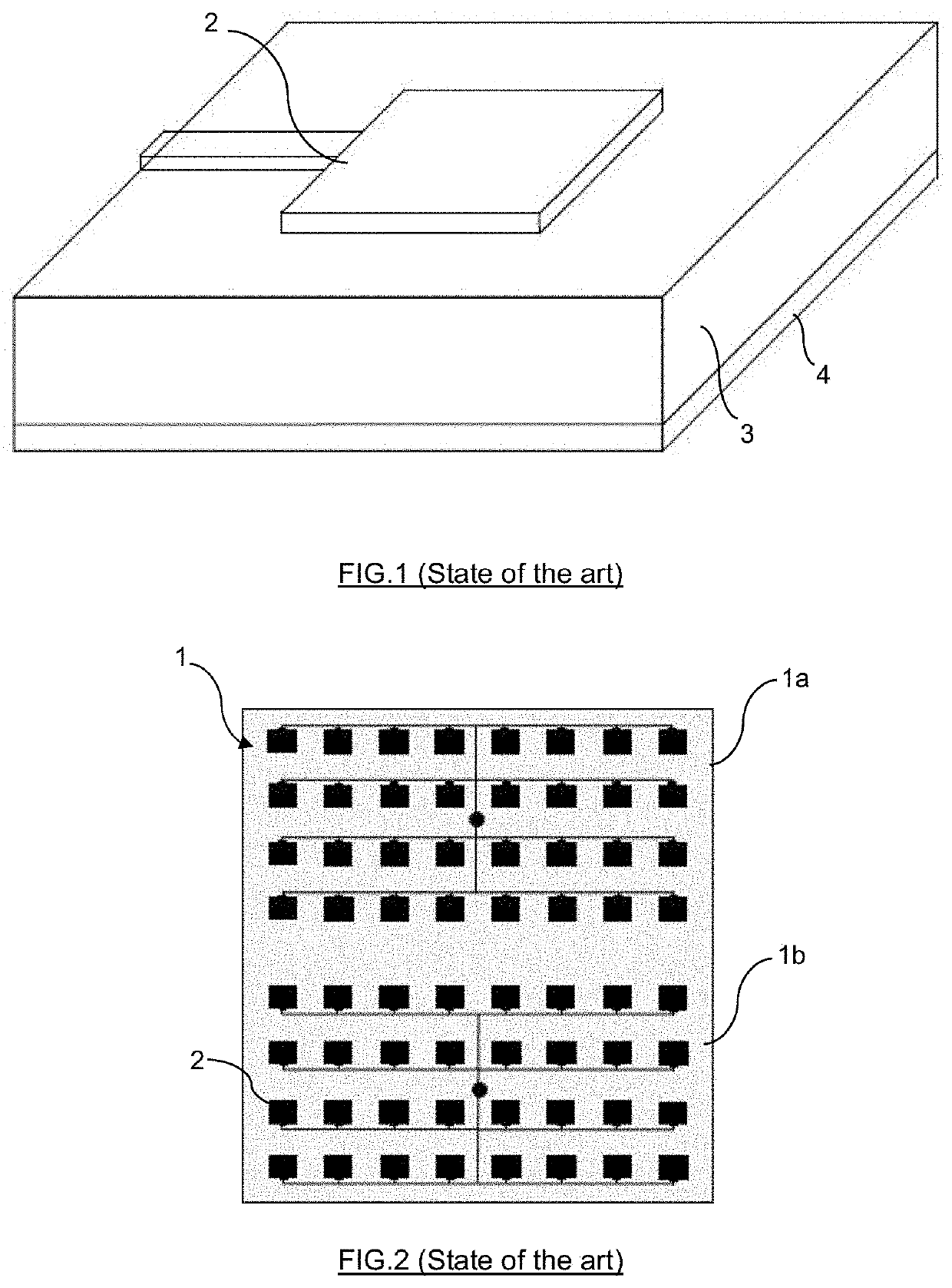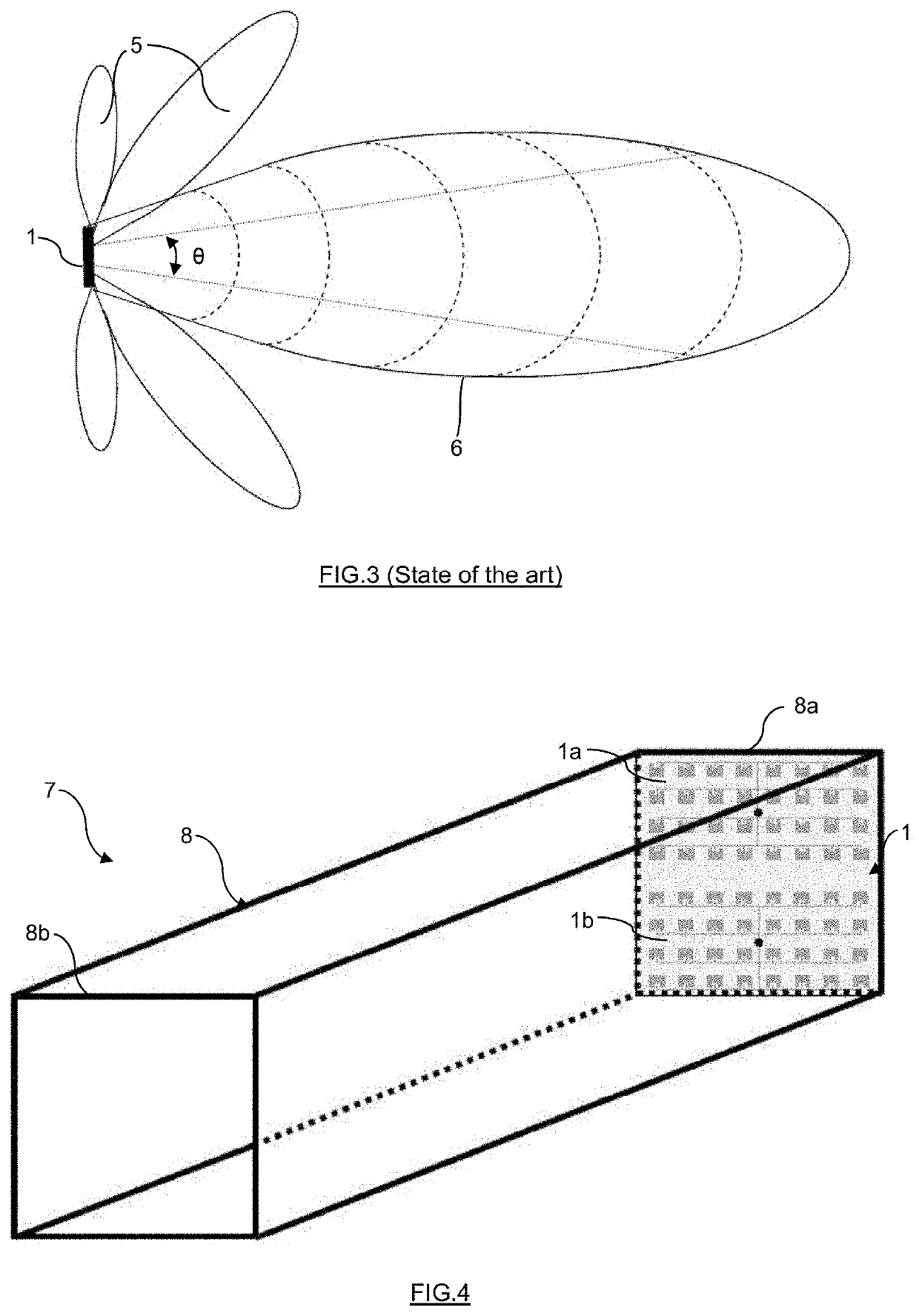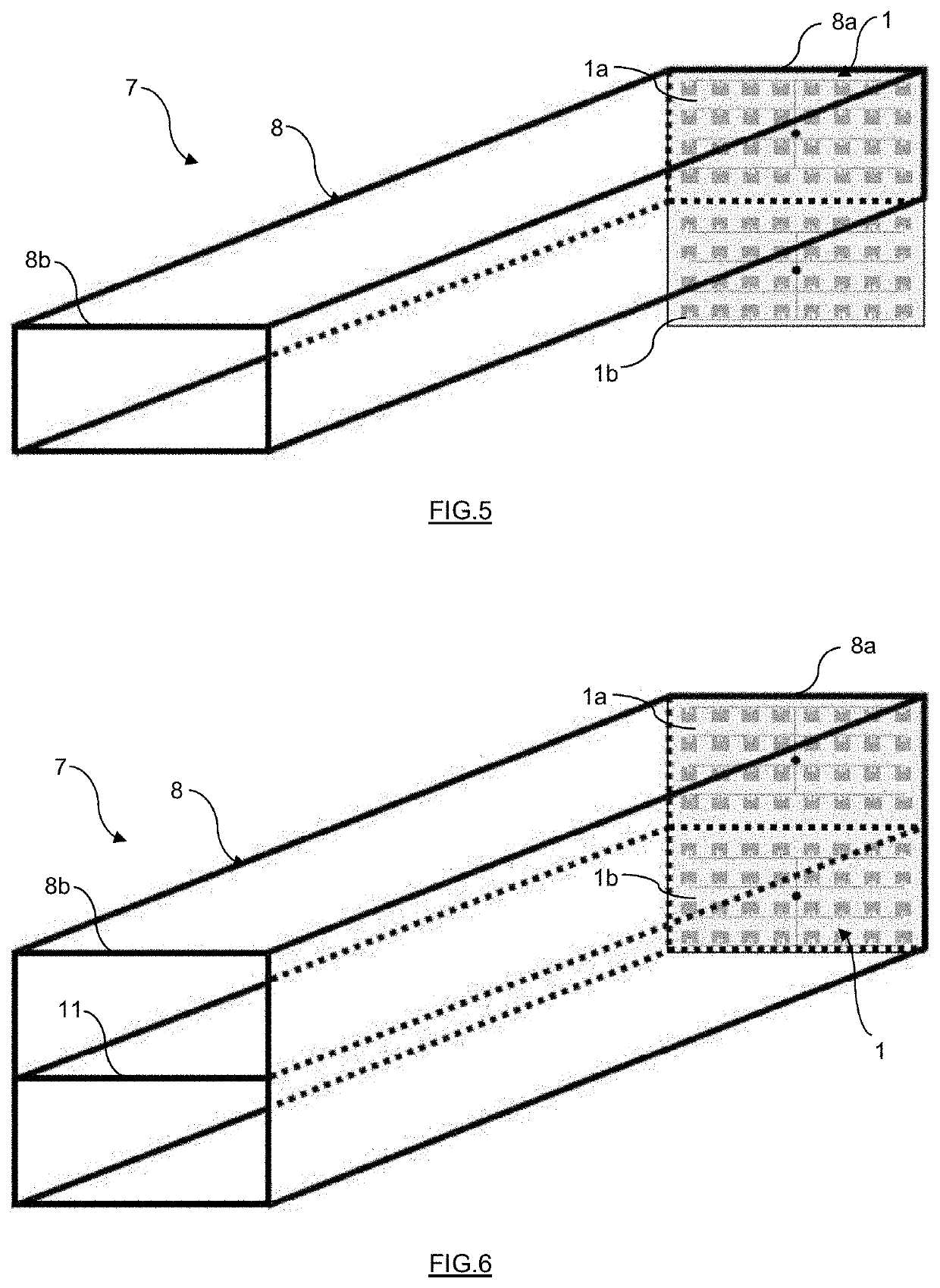Method and device to measure the velocity of a fluid flowing in a confined space
a fluid flow and velocity technology, applied in the direction of measurement devices, volume/mass flow measurement, instruments, etc., can solve the problems of important noise impairing the accuracy of measurement, and achieve the effect of reducing potential side lobe formation, reducing noise, and being non-invasiv
- Summary
- Abstract
- Description
- Claims
- Application Information
AI Technical Summary
Benefits of technology
Problems solved by technology
Method used
Image
Examples
Embodiment Construction
[0013]The invention relates to a non-invasive method and a device for measuring the surface velocity of a fluid flowing more specifically in a confined space. However, the present invention does not exclude to use this device for measurements in open air for rivers, irrigation channels and other large man-made channels. The device 7 comprises a patch antenna 1 with a set of interconnected patches acting as a microwave transmitter 1a and another set of interconnected patches acting as a microwave receiver 1b (FIG. 4-10). As shown in FIG. 4 or 5, at least the set of patches acting as the transmitter 1a is mounted at one end 8a of a reflector tube 8. This tube is electrically conductive and for example in metal. The other end 8b of the reflector tube 8 is left open or might be equipped with a microwave lens 9 as illustrated in FIG. 12. The transmitted microwave signal is guided through this electrically conductive tubular shaped volume to the surface of the fluid 10 as represented in F...
PUM
 Login to View More
Login to View More Abstract
Description
Claims
Application Information
 Login to View More
Login to View More - R&D
- Intellectual Property
- Life Sciences
- Materials
- Tech Scout
- Unparalleled Data Quality
- Higher Quality Content
- 60% Fewer Hallucinations
Browse by: Latest US Patents, China's latest patents, Technical Efficacy Thesaurus, Application Domain, Technology Topic, Popular Technical Reports.
© 2025 PatSnap. All rights reserved.Legal|Privacy policy|Modern Slavery Act Transparency Statement|Sitemap|About US| Contact US: help@patsnap.com



